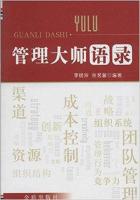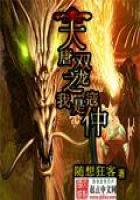I
At Monte Carlo, in the spring of the year 189-, I used to notice an old fellow in a grey suit and sunburnt straw hat with a black ribbon.
Every morning at eleven o'clock, he would come down to the Place, followed by a brindled German boarhound, walk once or twice round it, and seat himself on a bench facing the casino.There he would remain in the sun, with his straw hat tilted forward, his thin legs apart, his brown hands crossed between them, and the dog's nose resting on his knee.After an hour or more he would get up, and, stooping a little from the waist, walk slowly round the Place and return up hill.Just before three, he would come down again in the same clothes and go into the casino, leaving the dog outside.
One afternoon, moved by curiosity, I followed him.He passed through the hall without looking at the gambling-rooms, and went into the concert.It became my habit after that to watch for him.When he sat in the Place I could see him from the window of my room.The chief puzzle to me was the matter of his nationality.
His lean, short face had a skin so burnt that it looked like leather;his jaw was long and prominent, his chin pointed, and he had hollows in his cheeks.There were wrinkles across his forehead; his eyes were brown; and little white moustaches were brushed up from the corners of his lips.The back of his head bulged out above the lines of his lean neck and high, sharp shoulders; his grey hair was cropped quite close.In the Marseilles buffet, on the journey out, I had met an Englishman, almost his counterpart in features--but somehow very different! This old fellow had nothing of the other's alert, autocratic self-sufficiency.He was quiet and undemonstrative, without looking, as it were, insulated against shocks and foreign substances.He was certainly no Frenchman.His eyes, indeed, were brown, but hazel-brown, and gentle--not the red-brown sensual eye of the Frenchman.An American? But was ever an American so passive? AGerman? His moustache was certainly brushed up, but in a modest, almost pathetic way, not in the least Teutonic.Nothing seemed to fit him.I gave him up, and named him "the Cosmopolitan."Leaving at the end of April, I forgot him altogether.In the same month, however, of the following year I was again at Monte Carlo, and going one day to the concert found myself seated next this same old fellow.The orchestra was playing Meyerbeer's "Prophete," and my neighbour was asleep, snoring softly.He was dressed in the same grey suit, with the same straw hat (or one exactly like it) on his knees, and his hands crossed above it.Sleep had not disfigured him -his little white moustache was still brushed up, his lips closed; a very good and gentle expression hovered on his face.Acurved mark showed on his right temple, the scar of a cut on the side of his neck, and his left hand was covered by an old glove, the little forger of which was empty.He woke up when the march was over and brisked up his moustache.
The next thing on the programme was a little thing by Poise from Le joli Gilles, played by Mons.Corsanego on the violin.Happening to glance at my old neighbour, I saw a tear caught in the hollow of his cheek, and another just leaving the corner of his eye; there was a faint smile on his lips.Then came an interval; and while orchestra and audience were resting, I asked him if he were fond of music.He looked up without distrust, bowed, and answered in a thin, gentle voice: "Certainly.I know nothing about it, play no instrument, could never sing a note; but fond of it! Who would not be?" His English was correct enough, but with an emphasis not quite American nor quite foreign.I ventured to remark that he did not care for Meyerbeer.He smiled.
"Ah!" he said, "I was asleep? Too bad of me.He is a little noisy--I know so little about music.There is Bach, for instance.Would you believe it, he gives me no pleasure? A great misfortune to be no musician!" He shook his head.
I murmured, "Bach is too elevating for you perhaps.""To me," he answered, "any music I like is elevating.People say some music has a bad effect on them.I never found any music that gave me a bad thought--no--no--quite the opposite; only sometimes, as you see, I go to sleep.But what a lovely instrument the violin!"A faint flush came on his parched cheeks."The human soul that has left the body.A curious thing, distant bugles at night have given me the same feeling." The orchestra was now coming back, and, folding his hands, my neighbour turned his eyes towards them.When the concert was over we came out together.Waiting at the entrance was his dog.
"You have a beautiful dog!"
"Ah! yes.Freda.mia cara, da su mano!" The dog squatted on her haunches, and lifted her paw in the vague, bored way of big dogs when requested to perform civilities.She was a lovely creature--the purest brindle, without a speck of white, and free from the unbalanced look of most dogs of her breed.
"Basta! basta!" He turned to me apologetically."We have agreed to speak Italian; in that way I keep up the language; astonishing the number of things that dog will understand!" I was about to take my leave, when he asked if I would walk a little way with him--"If you are free, that is." We went up the street with Freda on the far side of her master.
"Do you never 'play' here?" I asked him.















